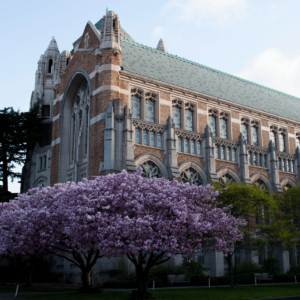 Authors:
Authors:
- Maya Smith, she/her, Associate Professor & Associate Dean for Equity, Justice and Inclusion, College of Arts and Sciences, University of Washington, Seattle campus
- Jennifer Nemhauser, she/her, Professor, Biology, University of Washington, Seattle campus
- Nazry Bahrawi, he/dia, Assistant Professor, Asian Languages and Literature, University of Washington, Seattle campus
- Emanuela Furfaro, she/her, Assistant Teaching Professor, Statistics, University of Washington, Seattle campus
- Josephine Walwema, she/her, Associate Teaching Professor, English, University of Washington, Seattle campus
- Andre Schuetze, he/him, Assistant Teaching Professor, German Studies, University of Washington, Seattle campus
- Meg Spratt, she/her, Teaching Professor, Integrated Social Sciences, University of Washington, Seattle campus
- Janna Lafferty, she/her, Academic Advisor, Integrated Social Sciences, University of Washington, Seattle campus
- Stephen Meyers, he/him, Associate Professor, Law, Societies & Justice, University of Washington, Seattle campus
- Stephen Groening, he/him, Associate Professor, Cinema and Media Studies, University of Washington, Seattle campus
Project Description
The College of Arts and Sciences two-pronged initiative includes 1) offering a series of programming concerning curricular development and inclusive pedagogies, and 2) piloting a small-group cohort where participants engage with the workshop lessons and each other over a quarter to develop concrete materials for their classrooms.
Project Question
Pedagogy and curricular development are often solitary tasks, even though we have so much to learn from our colleagues who encounter many of the same challenges we do in the classroom. What would happen if instructors could create communities of practice to brainstorm and share best practices around classroom issues? The College of Arts and Sciences (CAS) Pilot Cohort is a space where instructors across the college attend workshops and small group discussions to work together in making courses more inclusive.
Context
The participants come from the Humanities, Natural Sciences, and Social Sciences and comprise tenure-track faculty of all ranks, teaching faculty, and staff. They teach a variety of courses: in-person and online, small discussion-based and large lecture classes. Some courses are required; others, elective. The goal is to have as diverse a group as possible so that participants can hear perspectives and experiences that differ from their own in hopes of making it easier to think outside the box.
Methods
Cohort participants attend two workshops open to faculty, staff, and graduate students in CAS. In RaceTalk: Tools for Racial Justice, participants create personalized “racetalk as a skill” lesson plans to address student resistance and discomfort about discussing race/ism and other difficult topics. In workshops led by the UW Center for Teaching and Learning, participants collaborate with colleagues on how to best address accessibility, managing microaggressions, and inclusive course design by sharing strategies and creating communities of practice around inclusive teaching. The cohort meets regularly to discuss what they learn in the workshops and how to apply it to course design. They then present their course syllabi and modules to the cohort and receive feedback.
Impact/Assessment
Instructors in CAS have indicated immense anxiety around engaging in difficult conversations about highly politicized topics as well as an overwhelming desire to learn how to best approach these conversations in the classroom and elsewhere. Instructors also want to ensure that their classrooms, no matter the subject matter, are spaces where all students can learn and thrive. Immediate impact of the pilot cohort on student learning includes 1) bringing people across CAS together to understand how different disciplines are working on achieving inclusion goals 2) creating communities of practice that help keep instructors motivated and engaged in an era when DEI and social justice work have been under attack 3) articulating how inclusion needs go beyond content to become part of classroom methodologies.
Once instructors have been able to implement strategies in their classrooms, they will be able to measure the specific impact on students. Possible tools to measure impact include 1) surveys of student experiences during the quarter in addition to teaching and peer evaluations 2) reflexive assignments for both students and instructors where participants reflect on the effects of inclusive practices on their learning goals and outcomes.
Application
One of the key findings from the pilot cohort is that instructors often feel like they must tackle insurmountable problems by themselves. As we emerge from the pandemic, many people have noted a need to overcome isolation and siloing. Some instructors have argued that attempts at incorporating inclusive pedagogies is difficult because of lack of institutional support, political opposition, or something as basic as not knowing where to start. At the same time, there are many good resources as well as examples of creative problem solving happening across campus. Giving instructors space to brainstorm and try out their ideas has been helpful to jumpstart more inclusive pedagogical practices.
We often assume the innovations that instructors from other disciplines create won’t work in our own classrooms. However, the cohort participants realize that even if they come from diverse class sizes, course modalities, content areas, or methodological frameworks, they can learn a lot from each other’s course design and pedagogical practices.
This multidisciplinary project is meant to be replicated in other instructional contexts. It was designed as a pilot that could hopefully be adapted in a variety of ways. The cohort method could be applied at the divisional level in CAS (e.g., for natural sciences, or humanities, or arts, or social sciences faculty), within different colleges at UW, or on different UW campuses, etc. It could also focus on TAs in these various contexts.
Additional Insights
The following insights arose in our conversations:
- Inclusion is a campus-wide goal, so we must create structures that facilitate discussions across disciplines
- We need more opportunities for TAs to receive training and spaces for them to try out strategies, get feedback, brainstorm ideas
- In a global campus and city like ours, we need increased awareness and discussions of the dynamics between American and international students/faculty
- Rigor and excellence require inclusive practices